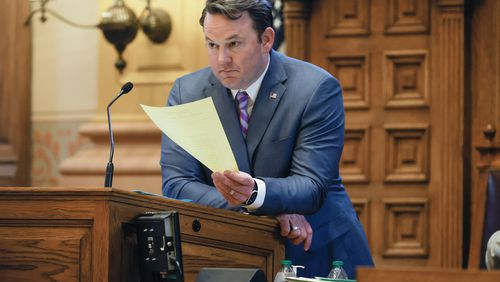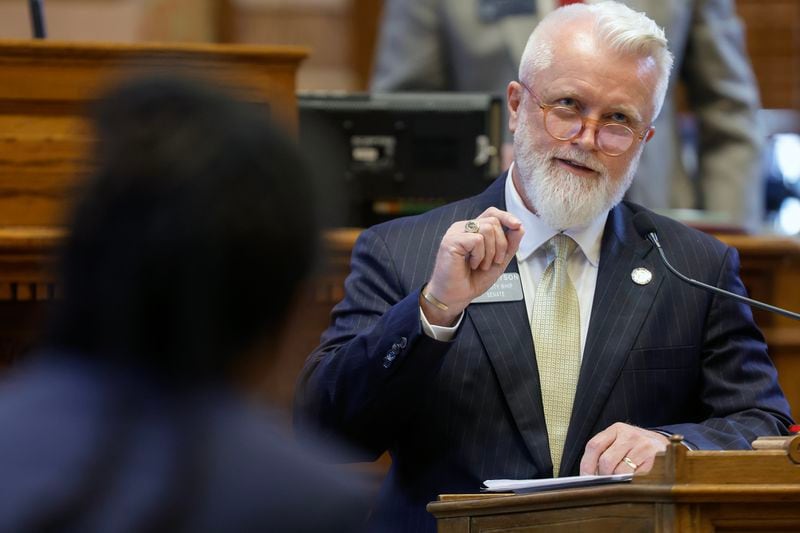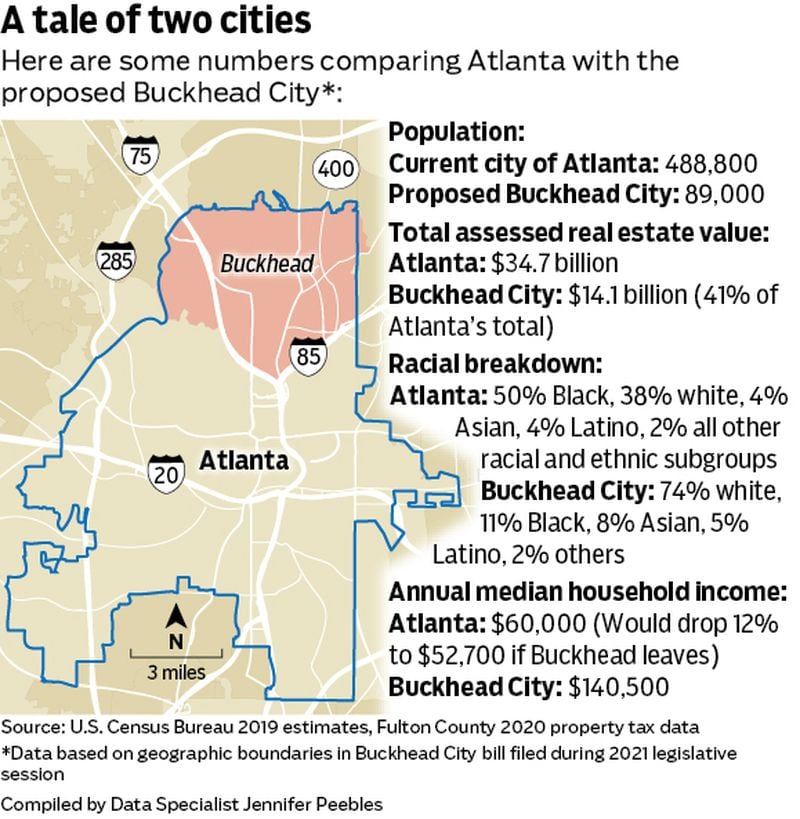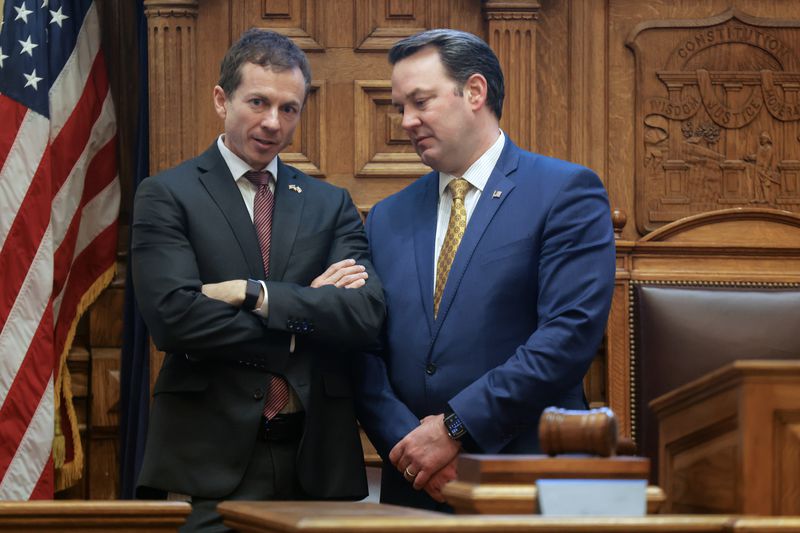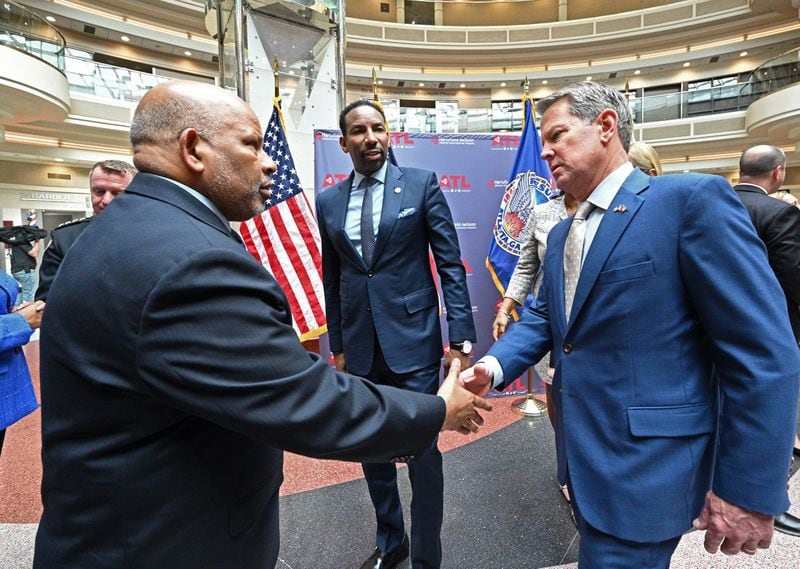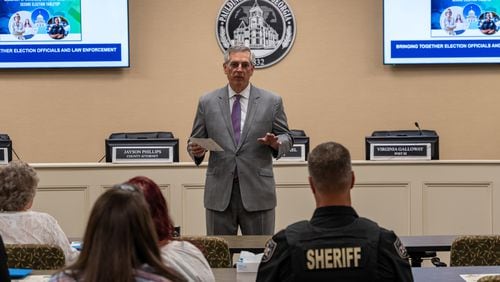The Georgia Senate put down a pro-Buckhead City rebellion, rejecting legislation Thursday that would have allowed a vote on whether the north Atlanta neighborhood could secede from the rest of the city.
It was a disappointment for the supporters of the breakaway movement, which won an incremental victory earlier this week when a tandem of proposals setting up a potential 2024 cityhood referendum cleared a Senate committee for the first time.
But those votes also galvanized city and state political leaders, corporate executives and community activists who say it would have irrevocably weakened the region and defied Atlanta’s image as a vibrant, diverse community.
The measure failed by a 33-23 vote, with all Democrats in the chamber opposing it along with 10 GOP senators who helped cement its defeat. A vote on a separate cityhood proposal was tabled, but the loss on the first vote was enough to stymie the breakaway effort.
The opponents were buoyed Wednesday by Gov. Brian Kemp’s administration, which issued a memo that raised nearly a dozen questions about the constitutionality of the proposal. Several Democrats even wore Kemp pins in a cheeky show of support for the anti-cityhood memo.
“Why are these bill sponsors pushing legislation that creates divisions and puts up walls?” said state Sen. Sonya Halpern, who represents a slice of Buckhead. “Imagine if legislators who don’t represent your city or your county are trying to do the same thing.”
It was a reference to the forces behind the breakup push, a mostly rural group of Republicans who live far beyond Atlanta’s limits.
Credit: Natrice Miller / Natrice.Miller@
Credit: Natrice Miller / Natrice.Miller@
State Sen. Randy Robertson and other sponsors of the measure brushed aside concerns that they were flouting local control, saying they aim to give a voice to Buckhead residents who are frustrated with how Atlanta officials are handling crime and other matters.
Instead, Robertson lashed out at Atlanta and its allies for prosecuting an “ugly” campaign against the divorce in what sounded at times more like a concession speech than a call to action. He challenged Republicans to show “backbone” in a final plea and then refused to take questions.
“Your vote is either against the citizens who want to be heard or against the citizens who want to be heard,” said Robertson, whose hometown of Cataula is more than 100 miles southwest of Atlanta. “It’s not complicated.”
Kemp’s questions
It was a rare defeat of a Republican-backed bill on the Senate floor, though it didn’t surprise GOP leaders who quietly acknowledged it didn’t have the votes to pass. Some said privately that they still allowed a vote in order to silence cityhood supporters in the long run.
Still, it’s unlikely that the overwhelming defeat ends the debate over a divorce. The well-organized backers of Buckhead cityhood say they’ll renew their effort to carve Atlanta into two cities.
And they still have powerful allies in their corner. Allies of Lt. Gov. Burt Jones, who supports cityhood, worked behind the scenes to entice wavering Republicans to back the idea. His spokeswoman said this week that he “is not shutting down” discussion.
Jones said Thursday that “the Senate body has now spoken on this issue.”
“Moving forward,” he added, “I intend to continue to be a strong and engaged partner with all parties — including the city of Atlanta — to ensure accountability so that all residents of Fulton County feel safe in their community.”
The cityhood effort was opposed by every elected official in Atlanta and a broad coalition of local leaders. Some major businesses even pledged to secede from Buckhead if the cityhood push somehow prevailed.
Critics of the measure noted the punitive terms of the breakup attempt, which would force Atlanta to sell public facilities, such as schools and infrastructure, at rock-bottom prices to the proposed city.
Pro-Atlanta forces were also bolstered by a two-page memo by Kemp executive counsel David Dove that warned unresolved questions about the legislation could “ripple into a future of unforeseen outcomes.”
Among the concerns, Dove questioned whether it would trigger a “possible widespread default” of municipal bonds by restructuring how billions of dollars of debt is handled. He also noted that supporters can’t say where students in the proposed city could attend schools.
Credit: Natrice Miller/AJC
Credit: Natrice Miller/AJC
Despite assurances from the pro-Buckhead movement that students in the proposed city would still attend Atlanta Public Schools after a split, the school system released a statement this week that said it wasn’t true.
“Children residing in a new City of Buckhead City would become students of Fulton County Schools,” APS wrote in a statement. “There is no legal mechanism for children residing outside of Atlanta to have guaranteed enrollment in APS or at particular APS schools.”
‘This makes no sense’
In the runup to the vote, GOP opposition grew. At least a half-dozen Republican senators told their colleagues this week that they would vote against Senate Bills 113 and 114. Among them was state Sen. Frank Ginn, who chairs the committee that cleared the measures.
“This legislation, for me, is real troublesome,” said Ginn, who said he was concerned that “Atlanta would die” if Buckhead is removed from its limits.
And Republican state Sen. John Albers reminded lawmakers that Buckhead had flipped decisively Democratic in 2020 — and that it was likely to elect a Democratic mayor and council.
“This makes no sense politically, operationally or financially,” Albers said.
The other Republican “no” votes were state Sens. Mike Dugan, Shelly Echols, Bo Hatchett, Mike Hodges, Chuck Hufstetler, Kay Kirkpatrick, Brian Strickland and Larry Walker.
The Buckhead City effort appeared to have traction last year before it was suffocated by legislative leaders. Since then, Kemp and Atlanta Mayor Andre Dickens have worked to repair strained city-state relations.
In an interview, Dickens praised Kemp for the “wise” decision to release the memo ahead of the vote, saying it helped lawmakers “see that it will have implications across the whole state — and the governor nor I want that.”
He told The Atlanta Journal-Constitution he’s confident that a convincing defeat will reverberate.
“That will send a strong signal to those individuals that don’t live in Atlanta, that are trying to separate Atlantans from each other, that they need to stop,” he said.
Credit: Hyosub Shin/AJC
Credit: Hyosub Shin/AJC

